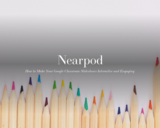
1074 Results

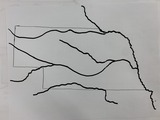
Objective: Students will use a map to locate and label seven of Nebraska's rivers. Overview: This map activity is a fun hands on way for students to learn map skills. This lesson plan addresses the following NDE Standards:SS3.3.1 Explore where (spatial) and why people, places, and environments are organized in the world., SS3.3.1a- Identify and apply map elements, SS3.3.1.b Use a map to identify location and distribution of physical and human features., SS.3.3.1.d Locate specific places on maps and globes. EX: Missouri River, Platte River, FA 5.2.1.b Use observation, imagination and interpretation in creating artworks that reflect a variety of styles, themes, (glossary) and subjects.
- Subject:
- Elementary Education
- Material Type:
- Activity/Lab
- Assessment
- Lesson
- Author:
- Nepthys Justo
- Date Added:
- 11/23/2020
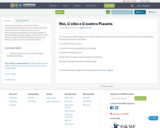
This educational project aims at providing a comprehensive picture of food, overcoming the vision of mere production, addressing the issues of environmental sustainability and ecology (chapter 1), health and dietary issues (chapter 2), the world of values cultural, wealth and diversity (Chapter 3) and issues relating to fairness and food safety (Chapter 4).
- Subject:
- Applied Science
- Education
- Elementary Education
- Environmental Science
- Life Science
- Nutrition
- Material Type:
- Full Course
- Date Added:
- 05/28/2019
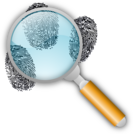
This lesson is to be used as a review or supplement to lessons on nonfiction text features. This lesson can be used by student in grades K-5; teacher will need to choose the appropriate text to use. Please review with students the text features they have studied before beginning.
- Subject:
- Elementary Education
- English Language Arts
- Language Education (ESL)
- Material Type:
- Activity/Lab
- Lesson
- Author:
- Janel Keyes
- Date Added:
- 07/24/2020
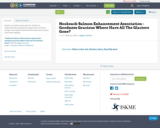
Hands-on outdoor lesson plan for students to understand the meaning and components of climate change, and engineer and model how greenhouse gases cause heat trapping.
- Subject:
- Applied Science
- Ecology
- Education
- Elementary Education
- Environmental Science
- Hydrology
- Life Science
- Physical Geography
- Physical Science
- Material Type:
- Activity/Lab
- Interactive
- Lesson
- Date Added:
- 05/23/2019
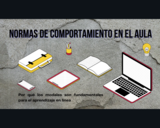
Normas de netiqueta en la red
- Subject:
- Education
- Educational Technology
- Elementary Education
- Material Type:
- Lecture Notes
- Author:
- Pablo Narváez
- Date Added:
- 09/30/2021
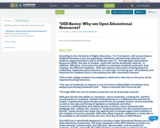
OER Basics Why use Open Educational Resources?
- Subject:
- Education
- Elementary Education
- English Language Arts
- Material Type:
- Reading
- Date Added:
- 10/29/2018
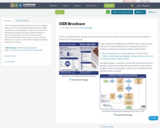
There are many benefits to instructors and to students when courses use Open Educational Resources (OER).
In addition to cost savings for students, instructors are finding that students read open online textbooks in more locations and more often than previously-purchased textbooks. Instructors can also customize open online content to reflect their students (and their geographic location).
- Subject:
- Education
- Educational Technology
- Elementary Education
- Higher Education
- Material Type:
- Student Guide
- Teaching/Learning Strategy
- Date Added:
- 05/18/2019

The overview is to have student achieve their locomotor skills.
- Subject:
- Elementary Education
- Material Type:
- Lesson Plan
- Author:
- Susan Sikorski
- Date Added:
- 05/04/2023

OER Materialen für die PrimarstufeUnterrichtsbeispiele für den Einsatz von Bee BotsBeispiel 1: Berühmte Bauwerke in Österreichs NachbarländernBeispiel 2: Bitte/Danke Formel in unterschiedlichen europäischen Ländern
- Subject:
- Elementary Education
- Material Type:
- Game
- Author:
- Manfred Nagl
- Date Added:
- 01/11/2024
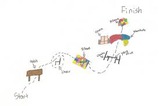
google photo
- Subject:
- Elementary Education
- Material Type:
- Activity/Lab
- Author:
- Kyra Keller
- Date Added:
- 11/22/2023
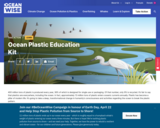
400 million tons of plastic is produced every year, 36% of which is designed for single use or packaging. Of that number, only 9% is recycled. It’s fair to say that plastics are everywhere, including the ocean. In fact, approximately 13 million tons of plastic enters oceanic currents annually. Plastic has become a pillar of modern life. It’s going to take a deep, transformational change in humanity’s consciousness and activities regarding the ocean to break the plastic pattern.
We believe this is possible! But we need your help. By relating socio-economic and scientific concepts such as watershed and ocean currents, food chain interactions, and the greenhouse gas effect, youth will learn the history of plastic, how it transformed our consumer habits, how it harms ocean health, exacerbates the current climate crisis, and how they can protect our ocean from further plastic pollution and restore the ecosystems already affected.
Through this education kit’s activities, students will be given the knowledge, tools, and skills to break their plastic pattern and become leaders of change – and this all starts in your classroom.
- Subject:
- Applied Science
- Biology
- Career and Technical Education
- Ecology
- Education
- Elementary Education
- Environmental Science
- Environmental Studies
- Life Science
- Oceanography
- Physical Science
- Zoology
- Material Type:
- Activity/Lab
- Case Study
- Interactive
- Lesson Plan
- Module
- Student Guide
- Unit of Study
- Author:
- Ocean WIse
- Date Added:
- 04/26/2024

This lesson is for students to deepen their knowledge of tornadoes. This is supplemented with a video, readings, simluators, and activity sheet. This is an opprotunity for students to explore and connect to the concept that will be learned.
- Subject:
- Elementary Education
- Material Type:
- Lesson Plan
- Author:
- Jasa Lightfoot
- Date Added:
- 10/13/2019

Willkommen im Lehr-Lernprojekt Lehr-Lernprojekt „Grammatik und Schule im digitalen Zeitalter: durch teilnehmende Beobachtung und forschungsorientiertes Lernen den eigenen Sprachgebrauch digitaler Kommunikation sowie Vermittlungsmöglichkeiten grammatischer Strukturen untersuchen“!
Kurzbeschreibung des Projekts
„WhatsApp & Co machen Schüler*innen dumm.“ Ziel des Seminars ist es, diese Aussage durch teilnehmende Beobachtung und forschungsorientiertes Lernen zu hinterfragen. Die Untersuchung des eigenen Sprachgebrauchs liefert empirische Befunde für die Vermittlung grammatischer Strukturen im digitalen Zeitalter.
Inwiefern unterscheidet sich digitale Kommunikation von anderen Sprachregistern und wie kann grammatische Kompetenz im digitalen Zeitalter vermittelt werden? Am Ende des Semesters sollen die Teilnehmenden in der Lage sein, grammatische Strukturen anhand digitaler Daten zu beschreiben. Außerdem wissen sie, wie digitale Daten aufbereitet und ggf. annotiert werden müssen, um für sprachwissenschaftliche Zwecke weiterverwendet werden zu können. Schließlich können sie sprachwissenschaftlich gegen den Sprachverfallmythos argumentieren und haben anhand ihrer eigenen Erfahrung mit digitalen Daten gelernt, dass die Benutzung sozialer Medien die deutsche Sprache nicht gefährdet.
Projektablauf und Teilnehmende
Das Projekt wurde 2020-2021 an der Universität Leipzig von Dr.in Naomi Truan (Antragstellerin und Projektleiterin) in Zusammenarbeit mit Dennis Dressel und Sophia Böhme durchgeführt. Rückmeldungen sind herzlich willkommen! Schreiben Sie mir gerne eine E-Mail an: naomi.truan@uni-leipzig.de.
- Subject:
- Education
- Educational Technology
- Elementary Education
- Higher Education
- Linguistics
- Social Science
- Material Type:
- Full Course
- Homework/Assignment
- Lesson Plan
- Student Guide
- Syllabus
- Teaching/Learning Strategy
- Author:
- Dennis Dressel
- Naomi Truan
- Date Added:
- 10/15/2021
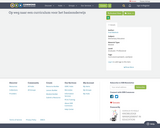
- Subject:
- Elementary Education
- Material Type:
- Module
- Author:
- Fred Mednick
- Date Added:
- 03/19/2016
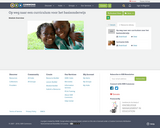
- Subject:
- Elementary Education
- Material Type:
- Module
- Author:
- Fred Mednick
- Date Added:
- 03/19/2016
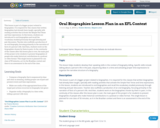
This lesson is part of a bigger project related to biographies. It is required for this classes that written biographies had already been taught, specially with reading activities that activate the Simple Past Tense and time expressions. In this lesson, students are introduced to oral biographies and recall the vocabulary studied previously through listening and pair discussion. Teacher also scaffolds a production of an oral biography, focusing primarily in the narration of facts of a person’s life. And then, students work on the biographies chosen by them in pairs. In the continuity of the classes after this lesson plan is over, the main goal of this project is for students to present biographies of people who make historical contributions in a podcast or video format. This single lesson is planned for one class of 50 minutes, as it in the Brazilian context and there is an assessment in the end of the class.
- Subject:
- Arts and Humanities
- Education
- Elementary Education
- Languages
- Material Type:
- Lesson Plan
- Date Added:
- 07/17/2019
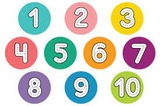
This lesson is abour learning ordinal numbers, and putting them in order. This also allows students to be able to put the word form with the number form.
- Subject:
- Elementary Education
- Material Type:
- Homework/Assignment
- Author:
- Brianna Carpenter
- Date Added:
- 05/04/2023
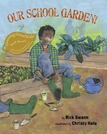
Michael is feeling all alone in a new city and new school until Jesse, a fellow student introduced him to the school garden! Working with new friends, exploring tastes, harvesting vegetables, nicknaminginsects, and solving garden riddles are just a few of the ways that the school garden helps Michael feel like he is growing roots. This Found Poetry style picture book is perfect for introducing a uniquemodern style of poetry while incorporating history, cooking, word study, and a love for the outdoor classroom.Grade Level: 2nd-5thLexile Level: Not availableGuided Reading Level: Not availableGenre: Fiction, poetry
- Subject:
- Biology
- Education
- Elementary Education
- Environmental Science
- Environmental Studies
- Life Science
- Material Type:
- Activity/Lab
- Assessment
- Lesson Plan
- Reading
- Teaching/Learning Strategy
- Author:
- The Bee Cause Project
- Date Added:
- 12/16/2020
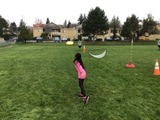
Frisbee Golf can be a great way to implement Outdoor Education into the Physical Education classroom. The activities in this unit from SHAPE Washington are all aligned to meet the state standards as well as provide enjoyment for the students. Lesson adaptations are suggested that incorporate inclusionary activities and meet the needs of students with disabilities.
- Subject:
- Elementary Education
- Health, Medicine and Nursing
- Material Type:
- Lesson Plan
- Unit of Study
- Author:
- Jamison Stockslager
- Carri Kreider
- Washington OSPI OER Project
- Date Added:
- 05/11/2022